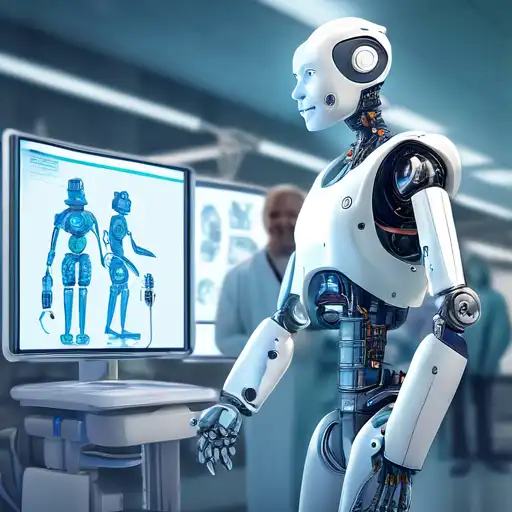The Dawn of Robotics in Healthcare
The integration of robotics into healthcare is revolutionizing the way medical services are delivered. From surgical procedures to patient care, robotics technology is enhancing efficiency, precision, and outcomes in the medical field.
Revolutionizing Surgical Procedures
Robotic surgery, a standout application of robotics in healthcare, allows surgeons to perform complex procedures with more precision, flexibility, and control than traditional techniques. The use of robotic systems, such as the Da Vinci Surgical System, minimizes patient recovery time and reduces the risk of complications.
Enhancing Patient Care and Rehabilitation
Robotics also plays a pivotal role in patient care and rehabilitation. Robotic exoskeletons, for instance, are transforming the lives of individuals with mobility impairments, enabling them to walk again. Similarly, robotic prosthetics are offering amputees a new lease on life with limbs that mimic natural movement.
Automating Pharmacy and Laboratory Tasks
In pharmacies and laboratories, robotics automates repetitive tasks, such as medication dispensing and sample analysis, reducing human error and increasing efficiency. This automation ensures that healthcare professionals can focus more on patient care than on manual tasks.
The Future of Robotics in Healthcare
The potential of robotics in healthcare is boundless. With advancements in artificial intelligence and machine learning, future robotic systems will be even more intuitive and capable of performing a wider range of medical tasks. The ongoing research and development in this field promise to further elevate the quality of healthcare services worldwide.
As we stand on the brink of this technological revolution, it's clear that robotics in healthcare is not just a fleeting trend but a game changer that's here to stay. The benefits it brings to both healthcare providers and patients alike underscore its importance in shaping the future of medicine.
Key Benefits of Robotics in Healthcare
- Increased precision in surgical procedures
- Improved patient outcomes and reduced recovery times
- Enhanced efficiency in pharmacy and laboratory tasks
- Greater accessibility to rehabilitation and mobility aids
In conclusion, the integration of robotics into healthcare is transforming the industry in unprecedented ways. By embracing this technology, healthcare providers can offer superior care, improve patient experiences, and pave the way for innovative treatments and procedures. The future of healthcare is robotic, and the possibilities are endless.
